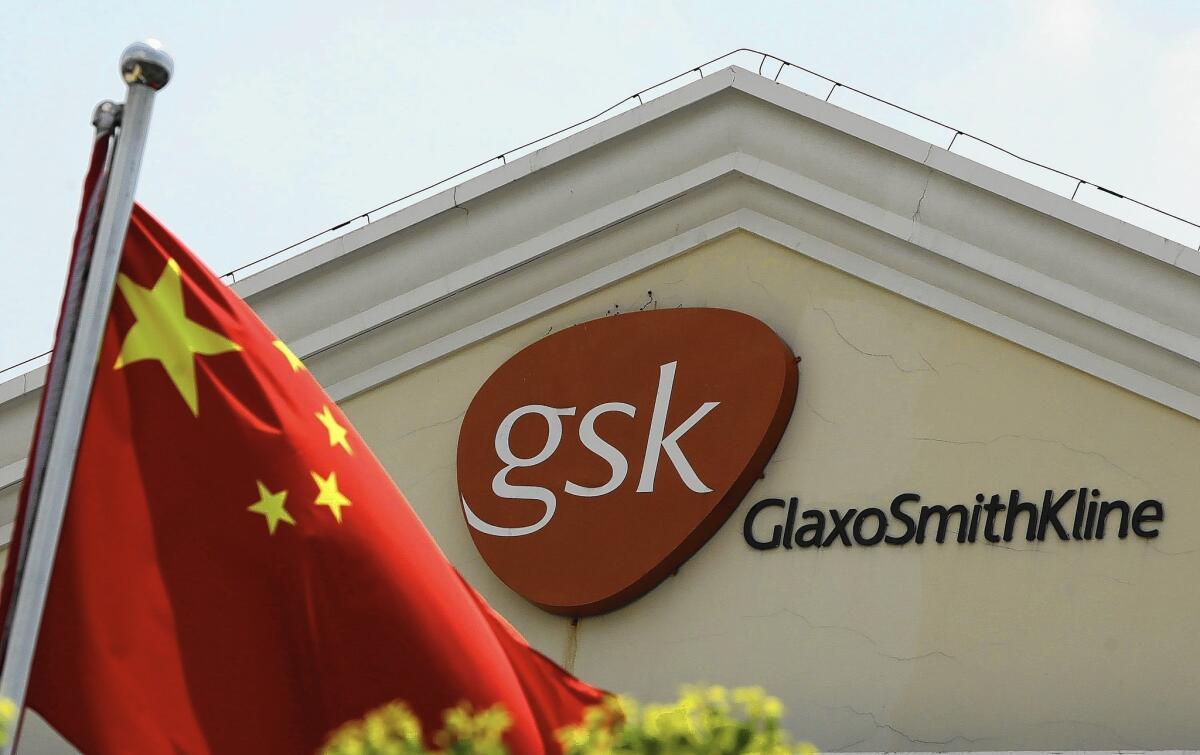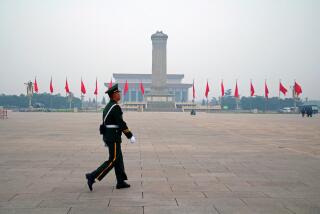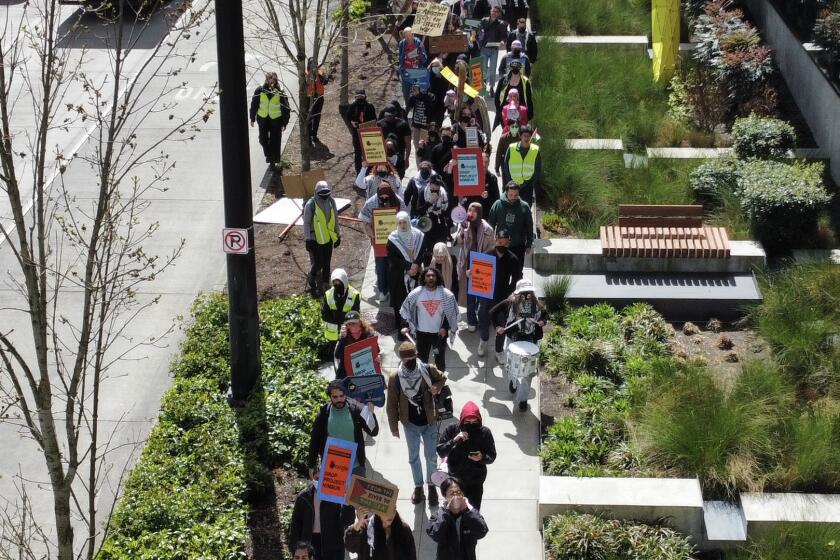China fines Glaxo $492 million in bribery case

China on Friday leveled a nearly half-billion-dollar fine against British drug maker GlaxoSmithKline after an investigation concluded that the company bribed physicians and hospitals to use its products.
The company’s ex-country manager was given a suspended three-year prison sentence and will be deported.
The $492-million fine represents the biggest penalty ever for any business entity — domestic or foreign — in China. Though the case centered on bribery allegations and price inflation, it also encompassed more tawdry elements, including a tussle over a sex tape and illegal use of private investigators.
The heavy penalty against GSK comes amid a raft of government investigations into the business practices of foreign firms in China. The government this month announced $46 million in fines against Volkswagen and Fiat Chrysler for pricing violations, and U.S. firms including Microsoft and Qualcomm are facing antitrust investigations.
Both the American Chamber of Commerce in China and the U.S.-China Business Council issued reports this month saying foreign enterprises feel increasingly targeted by regulators and investigators. The council’s president questioned whether China was using such probes to “protect its domestic industry rather than promote fair competition.”
GSK, however, offered no robust defense of its actions. In an effusive apology, the company said in a statement that it “apologizes to the Chinese patients, doctors and hospitals, and to the Chinese Government and the Chinese people.”
Adopting language often used in self-criticism sessions mandated by the Communist Party, the drug maker said it had “reflected deeply and learned from its mistakes.” It would take “tangible actions to establish itself as a model for reform in China’s healthcare industry” by, among other things, “continuing to invest in China and supporting China’s scientific development.”
By doing so, the company said, GSK would “promote the future health and well-being of the Chinese people, and positively contribute to China’s economic and social development.”
With 99,000 employees in 115 countries, GSK makes a number of products, including vaccines, Aquafresh toothpaste and Nicorette anti-smoking gum.
Though its revenues in China are a small fraction of its global business, they have been increasing rapidly — from about $590 million in 2009 to more than $1 billion in 2012, according to Chinese authorities. With incomes in China rising and the government putting greater emphasis on healthcare, the nation is seen as an especially lucrative potential market for decades to come.
The company said the $492-million fine would be paid out of existing cash reserves and would be reflected in its third-quarter earnings.
China’s official New China News Agency said in May that the case involved 46 suspects, including its country manager, William Mark Reilly, a British citizen. Police found that Reilly had ordered underlings to bribe hospitals, doctors and other medical institutions, thereby gaining “illegal revenue worth billions,” the agency said.
The 10-month probe also revealed that GSK “intentionally raised the price of its drugs in the Chinese market” by declaring higher prices to Chinese customs and that the price of some products was seven times as high in China as in other markets, the agency said. Executives then “faked transactions” to disguise ill-gotten gains, the report added.
Intrigue surrounding the case deepened when a secretly recorded video of Reilly having sex with his girlfriend in his apartment was sent to GSK headquarters. Believing a camera may have been planted in his apartment by the same person who was feeding authorities bribery allegations, Reilly hired a private detective firm to investigate.
But months later, the private investigators — British national Peter Humphrey and his American wife — ended up in the cross hairs of government authorities. They were detained and accused of illegally buying and selling private information. Handcuffed and wearing an orange prison vest, Humphrey made a ritualistic confession on state-run China Central Television.
On Friday, Reilly was handed a three-year suspended sentence and will be deported, the New China News Agency said.
GSK said Friday that it had “cooperated fully” with authorities and would fundamentally change its incentive program for its sales force.
The case was heard by the Changsha Intermediate People’s Court in Hunan province.







